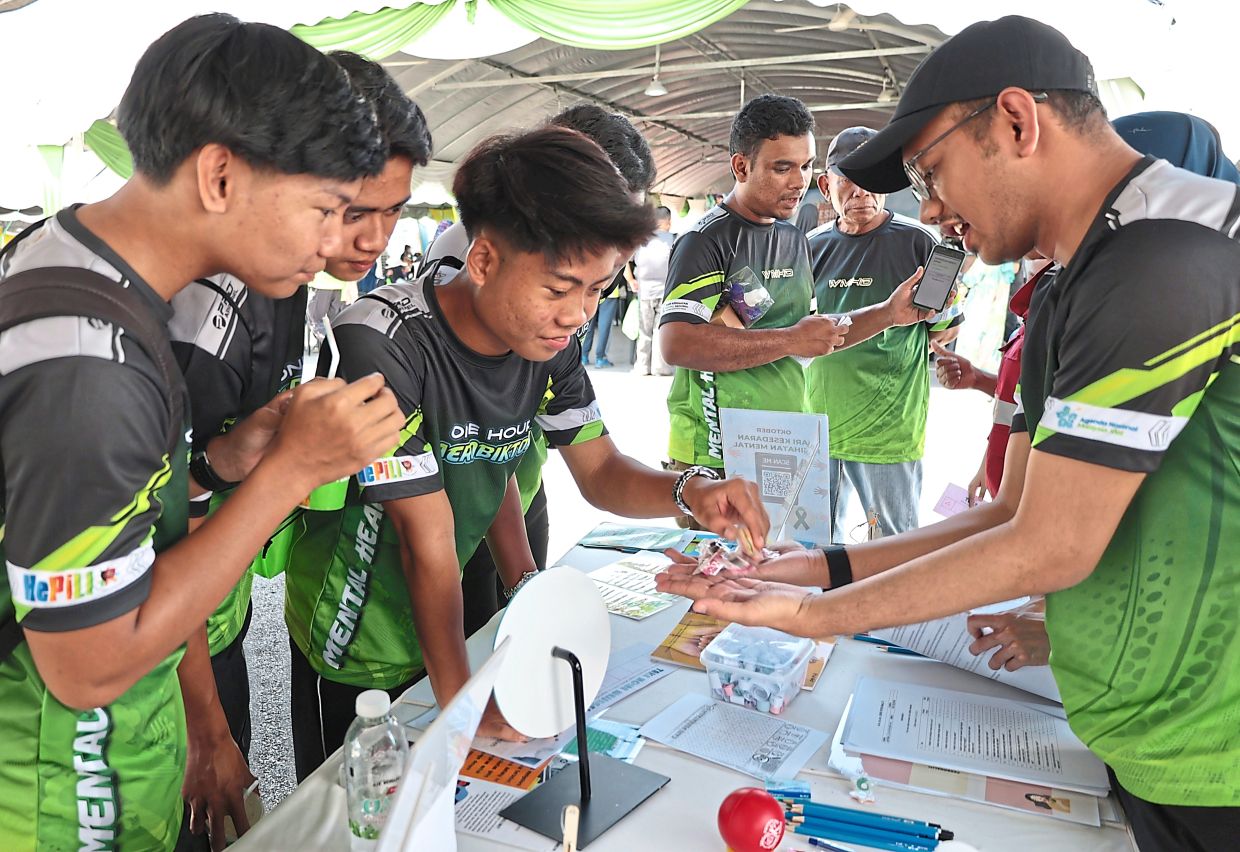BALIK PULAU: Schools are already carrying out periodic mental health screenings for students, says Penang Health Department public health medicine specialist Dr Tan Hooi Shyuan.
She said the data of the screenings was reviewed by school counsellors, where counselling was provided to students.
“Critical cases are sent directly to hospitals, while others are referred to the nearest health clinics.
“The referral system is well established to ensure students receive timely support from healthcare professionals,” she said.
Dr Tan said efforts to strengthen mental health support for students were being implemented through joint initiatives by the state health and education departments, together with other agencies and NGOs.
She said Penang had set up a state mental health committee two years ago, chaired by state health, sports and youth exco Daniel Gooi, to improve inter-agency cooperation.
“The committee brings together government agencies, NGOs, hospital specialists and primary healthcare representatives to plan and coordinate mental health programmes,” she said, adding that discussions had begun with the state Education Department on introducing suitable programmes in schools.
She said the committee continued to work with the state Health Department and the exco member’s office to expand joint projects to raise awareness and improve interventions.
On Oct 15, 16-year-old Yap Shing Xuen was stabbed multiple times in her school’s female toilet.
A 14-year-old student from the same school was arrested, and police seized two knives and a kerambit.
The incident prompted calls to review school mental health policies to prevent similar tragedies.
Earlier, Dr Tan attended the state-level World Mental Health Day 2025 celebration and National Malaysia Healthy Agenda tour at the Air Putih health clinic.
State Health Department director Datuk Dr Fazilah Shaikh Allaudin launched the event, accompanied by the island’s Southwest District health officer Dr Chiew Wye Lee.
Dr Fazilah said this year’s World Mental Health Day theme, “Access to Services: Mental Health in Crises and Disasters”, was in line with the global theme by the World Federation for Mental Health.
Citing World Health Organisation data, she said one in five people exposed to crises suffered mental health problems such as depression, anxiety or post-traumatic stress disorder.
She said Malaysia saw its depression rate double from 2.3% to almost 4.6% during the Covid-19 pandemic, affecting nearly a million people.
“This shows the urgent need to strengthen the nation’s mental health support system,” she said.
Visitor Hani Kampun, 38, said awareness was vital to help families spot early signs of stress and emotional struggle.
“Many people still think mental health problems only affect the weak. In truth, anyone can be affected, even children,” she said.
Pharmacist Atiqah Akmal Azil, 40, who had faced mental health challenges herself, said such conditions were treatable.
“Mental health problems are like any other illness. With proper treatment and support, recovery is possible,” she said.
She added that open conversations, early intervention and accessible counselling could encourage more people to seek help without fear of judgment.

